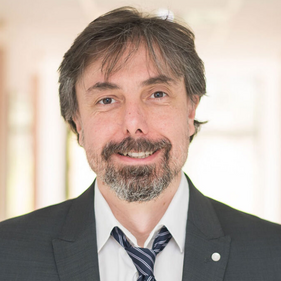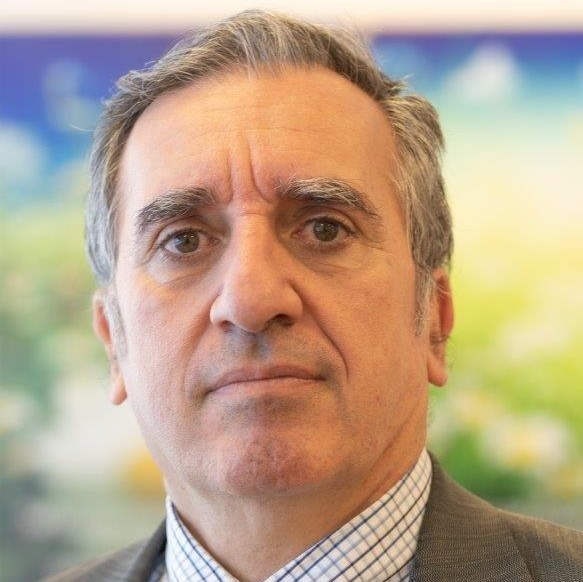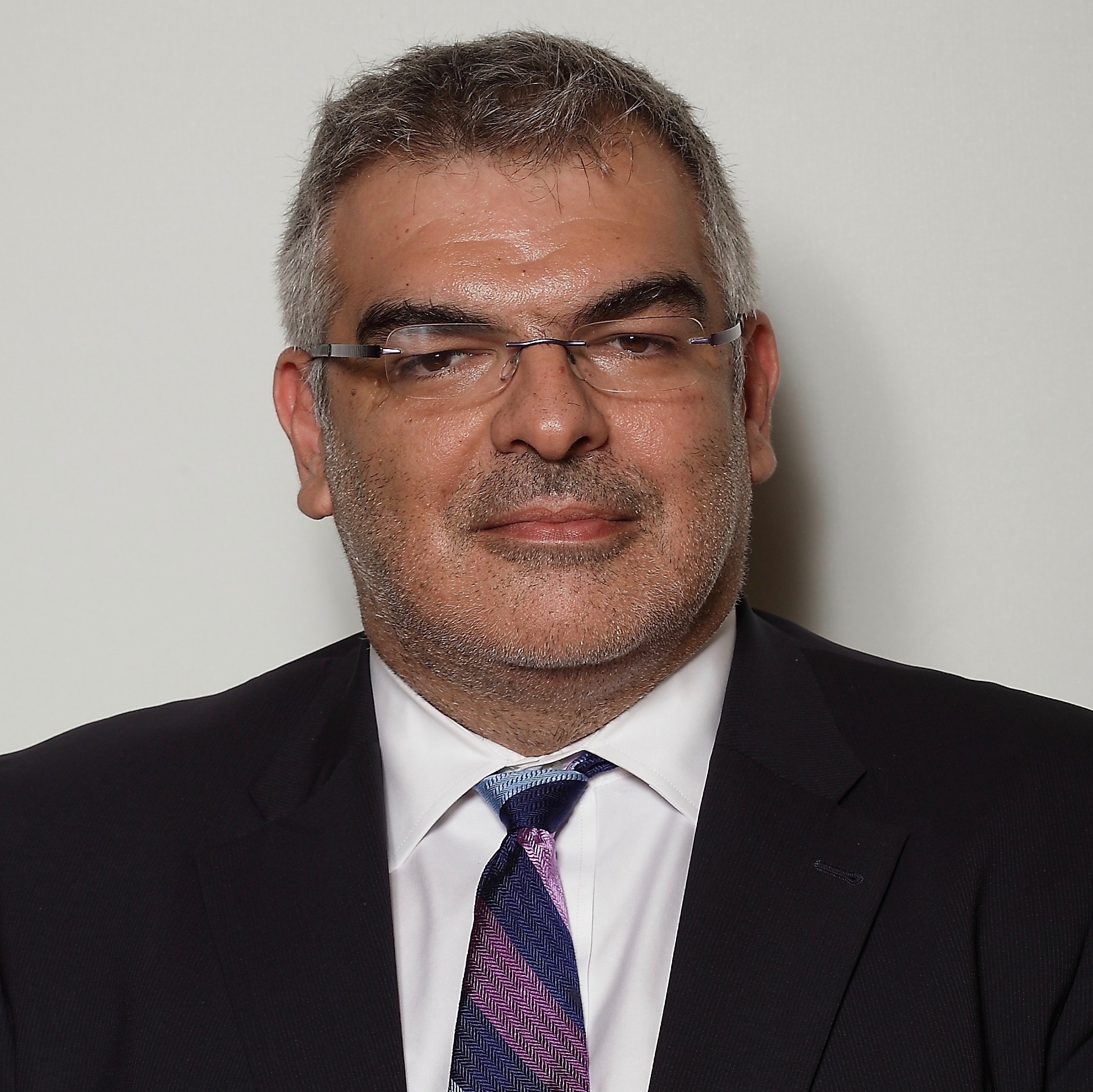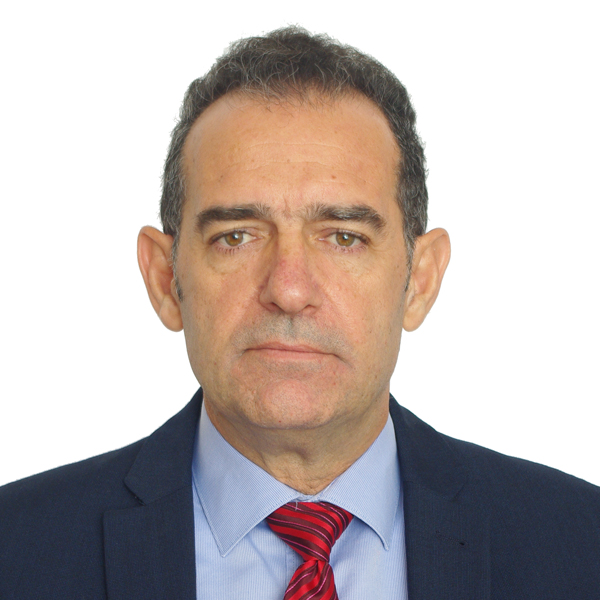- 21 November 2024, 13:30–14:30 Speaker: Eleni Verteouri (UBS, LinkedIn) Title: Introduction to Language Models: How Generative AI Understands and Responds to Us Abstract: Wondering how AI models like ChatGPT can understand questions and give meaningful answers? This beginner-friendly talk is a chance to dive into the basics behind these models without needing a deep technical background. We will cover how language models handle words and sentences, make sense of context, and improve their responses through simple prompt adjustments. You will also get a glimpse into how these models find and use relevant information to enhance answers on the spot. (This talk is delivered in a private capacity and does not necessarily reflect the views of UBS.) Bio: Eleni Verteouri is an GenAI Tech Lead and Director at UBS with over a decade of impactful work in model development. As an AI guest lecturer at ETH Zurich and ZHAW School of Management and Law, and a mentor at the Tenity Startup Incubator, Eleni has made significant contributions to shaping modern financial technologies. Her achievements have been recognized with the Forbes Cyprus 20 Women in Tech Award 2024. She holds a Master of Science in Quantitative Finance from ETH Zürich and a Master of Engineering in Electrical and Computer Engineering from the University of Patras. Location: Multimedia Amphitheater of the Central Library, Zografou Campus, NTUA Support: Hellenic Foundation for Research and Innovation Grant "Stability and Numerics for BSDEs under Uncertainty and Applications (START)". Slides: PDF
- 9 May 2022, 18:30–20:30 Speaker: Ioannis Tsamardinos (U. Creta and JADBio) Title: Automated Machine Learning for Knowledge Discovery and Predictive Modeling Abstract: Automated Machine Learning (AutoML) is a rising subfield of Machine Learning and Artificial Intelligence. It promises to democratize ML to non-experts, boost productivity, and reduce analysis methodological errors. The goal of AutoML is to create a predictive model for an outcome of interest optimizing the choice of the algorithms in the machine learning pipeline and their hyper-parameter values. More than that, however, it is also to offer all visualizations, interpretations, and explanations a human expert would put the model into production and make it operational. In this talk, we'll describe the problem of AutoML and offer some scientific and engineering solutions for each subproblem. These are implemented into the JADBio system, short for Just Add Data Bio. JADBio is the only AutoML system specifically designed with knowledge discovery in mind, especially for high-dimensional, low-sample datasets. Knowledge discovery is provided in the form of feature selection, i.e., the minimal-size subset of features that leads to an optimally predictive model. Case study examples will be presented. Bio: Ioannis Tsamardinos, Ph.D., is a Professor at the Computer Science Department of the University of Crete, CEO and co-founder of JADBio, a University start-up. He obtained his Ph.D. from the Intelligent Systems Program at the University of Pittsburgh in 2001. He then worked as Assistant Professor at the Department of Biomedical Informatics at Vanderbilt University until 2006, when he returned to Greece. Prof. Tsamardinos’ main research directions include machine learning, bioinformatics, and artificial intelligence. More specifically, his work emphasizes automated machine learning, feature selection, and causal discovery. Prof. Tsamardinos has over 140 publications in international journals, conferences, and books. Distinctions include Gold Medal in the Student Paper Competition in MEDINFO 2004, the Outstanding Student Paper Award in AIPS 2000, the NASA Group Achievement Award for participation in the Remote Agent team, and others. Statistics on recognition of work include more than 10000 citations (1000+ a year) and an h-index of 41 (as estimated by Google Scholar). Ioannis has been awarded the European and Greek national grants of excellence, the ERC Consolidator, ERC PoC, and the ARISTEIA II grants, respectively. Venue: Webex Support: Hellenic Foundation for Research and Innovation Grant No. HFRI-FM17-2152, "New Paradigms in Mathematical Finance: Modeling, Analysis, Computation".
- 10 May 2021, 18:30–20:30 Speaker: Nikolaos Porfyris (ATHEX) Title: Capital Markets and ATHEX Group: Challenges and Opportunities Abstract: TBA Bio: Dr. Nikolaos Porfyris is currently Chief Post-trading & International Business Development Officer at ATHEXGroup. He has been with the Athens Exchange Group since 1998 in a number of positions, as Head of Research, Director of Business Development of Derivatives Market, Director of International Affairs, Director of the Central Registry, Deputy Chief Operating Officer and Chief Business Development Officer. He is currently Vice Chair of the Markets Steering Committee of ATHEX. He is representing ATHEXGroup in European Associations such as the Federation of European Stock Exchanges (FESE), where he is also Vice Chair of the Management Committee, the European Central Depositories Association (ECSDA) and European Association of Clearing Houses (EACH). He has been working in the securities industry since 1993 with previous appointments with Fimat, Societe Generale Group, and HSBC James Capel as quantitative analyst, derivatives analyst and research and dealing, respectively. He is holder of a first class BS in Physics from the National and Kapodistrian University of Athens, a PhD in Electrical Engineering from Edinburgh University and an MBA with orientation in Finance from the Edinburgh University Management School. His previous working experience include research and process engineering in the microelectronics industry. Venue: Webex Support: Hellenic Foundation for Research and Innovation Grant No. HFRI-FM17-2152, "New Paradigms in Mathematical Finance: Modeling, Analysis, Computation". Slides: PDF
- 22 March 2021, 18:30–20:30 Speaker: Raúl Tempone (RWTH Aachen & KAUST) Title: Quantifying Uncertainty with a Derivative Tracking SDE Model and Application to Wind Power Forecast Data Abstract: We develop a data-driven methodology based on parametric Itô's Stochastic Differential Equations (SDEs) to capture the real asymmetric dynamics of forecast errors. Our SDE framework features time-derivative tracking of the forecast, time-varying mean-reversion parameter, and an improved state-dependent diffusion term. Proofs of the existence, strong uniqueness, and boundedness of the SDE solutions are shown under a principled condition for the time-varying mean-reversion parameter. Inference based on approximate likelihood, constructed through the moment-matching technique both in the original forecast error space and in the Lamperti space, is performed through numerical optimization procedures. We propose another contribution based on the fixed-point likelihood optimization approach in the Lamperti space. All the procedures are agnostic of the forecasting technology, and they enable comparisons between different forecast providers. We apply our SDE framework to model historical Uruguayan normalized wind power production and forecast data between April and December 2019. Sharp empirical confidence bands of future wind power production are obtained for the best-selected model. Bio: Raúl Tempone is an Alexander von Humboldt professor with the RWTH Aachen University in Germany since 2018. His research area lies within numerical analysis. Specifically, it relates to the numerical discretization and error estimation for stochastic differential equations, numerical methods for differential equations subject to uncertainty (forward problems, inverse problems, optimization, and optimal control), and model validation techniques. The areas of application he considers include, among others, engineering, chemistry, biology, physics as well as social sciences, and computational finance. He received a Ph.D. in Numerical Analysis in 2002 ("A posteriori error estimation and control for stochastic differential equations", supervised by Anders Szepessy, KTH). He later moved to ICES, UT Austin, to work as a postdoctoral fellow from 2003 until 2005 in numerical methods for PDEs with random coefficients, supervised by Ivo Babuska. In 2005, he became an assistant professor in the School of Computational Sciences and the Department of Mathematics at Florida State University, Tallahassee. In 2007, KTH and COMSOL awarded him the first Dahlquist fellowship for his contributions to the numerical approximation of deterministic and stochastic differential equations. In 2009, he joined KAUST as an Associate Professor in Applied Mathematics. He later became the Director of the KAUST Center for Uncertainty Quantification and was promoted to Full Professor's rank in 2015. The SIAM members elected him Program Director of the SIAM Uncertainty Quantification Activity Group in 2013–2014. In 2016, Thompson Reuters named him a highly cited researcher. Venue: Webex Support: Hellenic Foundation for Research and Innovation Grant No. HFRI-FM17-2152, "New Paradigms in Mathematical Finance: Modeling, Analysis, Computation". Slides: PDF
- 11 January 2021, 18:30–20:30 Speaker: Theodoros Stamatiou (Eurobank) Title: Reforming the Benchmark Rates: The Eurozone Case Abstract: The reform process of the Eurozone Benchmark interest rates that emerged as a result of the aftermath of the LIBOR and EURIBOR market manipulation scandals and the 2008 financial crisis is already under way. In this seminar, we will present the basic elements of the EONIA to €STR transition process; as well as the EURIBOR reform process, with special focus on the two ongoing public consultations – on fallback trigger events and on the identification of the most appropriate fallback rate methodology for each financial product – initiated by the Working Group on Euro Risk Free Rates*. We will also cover the developments in other jurisdictions including the US LIBOR. * The working group on euro risk-free rates, set up jointly, in early 2018, by the ECB, the Belgian Financial Services and Markets Authority, the European Securities and Markets Authority and the European Commission, is responsible for the reform process of the Eurozone Benchmark interest rates. Bio: Theodoros Stamatiou, PhD, currently is a Senior Economist in the Economic Analysis and Market Research Division of Eurobank Ergasias SA and a Research Fellow at the Department of Banking and Financial Management, University of Piraeus. From 2018 to present, he is a voting member of the Working Group on Euro Risk Free Rates, and the Ambassador of the said group for Greece. From September 2014 to March 2015 he was a Member of the Council of Economic Advisors at the Greek Ministry of Finance. Previously (October 2009 - August 2014) he worked as a Research Economist in the Research & Forecasting Division of Eurobank-Ergasias SA. Theodoros received his PhD from the Department of Banking and Financial Management, University of Piraeus, Greece, an MSc in Economic Analysis from the Athens University of Economics and Business, Greece and an MSc in International Economics, Banking and Finance from the University of Wales, UK. He completed his undergraduate studies in Economics at the Department of Economics, University of Athens, Greece. His research interests include market microstructure, the Greek sovereign debt crisis, financial economics, and financial history. Venue: Webex Support: Hellenic Foundation for Research and Innovation Grant No. HFRI-FM17-2152, "New Paradigms in Mathematical Finance: Modeling, Analysis, Computation". Slides: PDF
- 14 December 2020, 18:30–20:30 Speaker: Astyanax Kanakakis (norbloc) Title: How does the traditional finance world interface with the crypto universe and what does that mean for wider adoption of cryptocurrencies? Abstract: Since 2015, efforts have been made by traditional financial institutions to include cryptocurrencies in their investment theses. Gaining exposure to cryptocurrencies for both institutional as well as retail investors is hampered by the reluctance of key players in both ecosystems to work with each other. The session will examine the case of the XBT Provider ETN instrument in Nasdaq, what that case shows for wider interfacing of the new and old markets as well as offer a view of what could be the future for traditional financial instruments "democratizing" access to cryptocurrencies. Bio: Astyanax is the CEO and co-founder of norbloc, a leader in regulatory platforms employing blockchain technology. He has spent more than 12 years in Finance and Consulting, most recently as Associate Partner in McKinsey & Company, specializing in banking and corporate finance. He was previously Chief Commercial Officer in KnCGroup, the bitcoin blockchain pioneer, and acting CEO and Chairman of the Board in XBT Provider, the global leader in cryptocurrency ETNs. His previous experience in financial markets includes tenure in Lehman Brothers' Risk Arbitrage trading desk on Equities. Astyanax holds a BSc. in Computer Science and Electronic Engineering from University College London, an MSc in Advanced Computing from Imperial College, an MSc in Information Systems Management from The London School of Economics and an MBA from the Wharton School of the University of Pennsylvania. Venue: Webex Support: Hellenic Foundation for Research and Innovation Grant No. HFRI-FM17-2152, "New Paradigms in Mathematical Finance: Modeling, Analysis, Computation".
-
9 November 2020, 18:30–20:30
Speaker: Dimitris Tsakonas (Public Debt Management Agency, PDMA)
Title: Debt management in dealing with the Greek debt crisis: goals and prospects
Abstract: The presentation will focus on the following points:
-Short history and report on the debt crisis in Greece.
-Basic principles of lending, public debt portfolio management and government cash management, as well as reference to basic fiscal rules.
-Basic parameters, benchmarks and setting limits for hedging market risks inherent in the public debt portfolio.
-Public debt sustainability indicators.
-The objectives of the lending and management policy and the prospects of the Greek government bond market.
Brief theoretical references will be made for all the above, while the discussion, in order to become interesting and useful for the audience, will focus mainly on the "real" reality of our living history. Bio: Dimitris Tsakonas is the Director General of the Public Debt Management Agency (PDMA) since July 2019. He has worked at the PDMA as Alternate Director General (Jan 2018-July 2019), Director of Funding & Portfolio Management (Feb 2015-Jan 2018) and Expert in the Portfolio Management Department (Oct 1999-March 2009). He has also served as Expert and Head of Department A’ in the Public Debt Directorate of the Ministry of Finance (May 1995-Oct 1999, Mar 2009-Feb 2015). He has also worked for the National School of Public Administration and for Mobil Oil Hellas S.A. Dimitris Tsakonas holds a Ptychion in Mathematics from the University of Ioannina, an MSc in Banking and Finance from the Athens University of Economics and Business, and has also graduated from the Greek National School of Public Administration. Dimitris Tsakonas was the recipient of the Sovereign Risk Manager of the Year Award in 2019 from Risk Magazine. Venue: Webex Support: Hellenic Foundation for Research and Innovation Grant No. HFRI-FM17-2152, "New Paradigms in Mathematical Finance: Modeling, Analysis, Computation".






